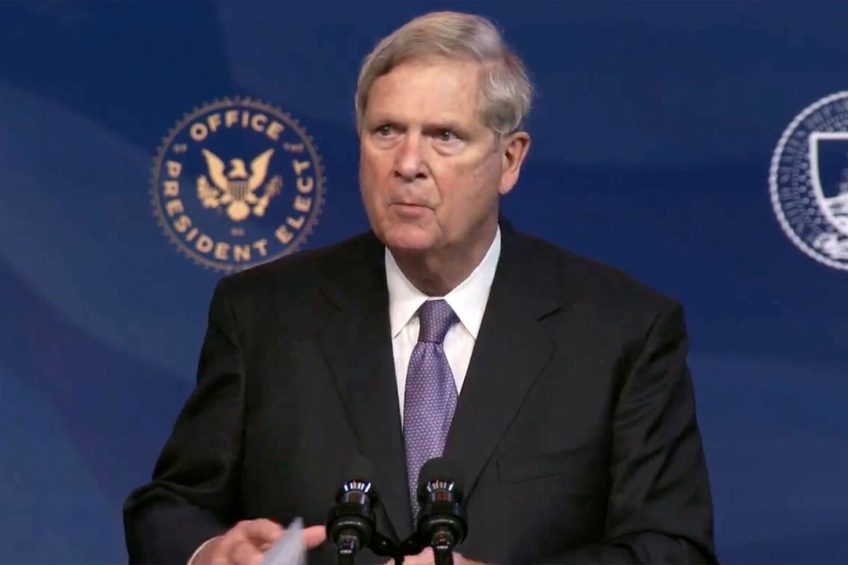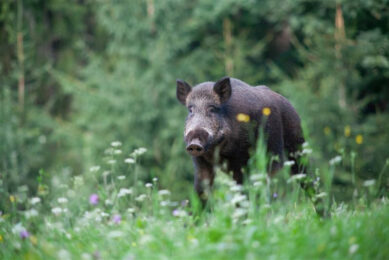Pig farming under a new US administration

As from January 20, a new administration will be installed in Washington, DC. The new agriculture secretary in the Biden administration is a face known by many: Tom Vilsack. His actions during his previous time in the same job are considered dismal by many in the agricultural community.
The recent fractious US presidential election will surely be analysed by historians for many years to come, but for their part, US farmers just want to move forward with the respect and support they need from the new president and agriculture secretary in order to earn a good living now and in the future.
In countless media reports before the recent federal election, US farmers were expected to again largely vote for Trump as they did in the 2016 election (recall however, that US farmers overwhelmingly vote for the Republican party no matter the candidate). They did indeed vote for Trump in large numbers, despite the fact that Trump started a trade war with China in 2018 which removed a key agricultural export market. That year, the Trump administration levied $ 34 billion in tariffs on Chinese goods and China retaliated with tariffs on US agricultural products. These rose to 33% for soybeans and a shocking 72% for US pork products.
Agricultural concerns in 2021
Indeed, American Farm Bureau executive vice president Dale Moore recently stated that trade continues to be a central concern for US farmers, both with Pacific Rim countries and those across the Atlantic. He said, “We look forward to hopefully making some progress with the European Union,” adding that “the other area that is always a perennial issue… is ensuring that farmers and ranchers have access to a ready, stable, legal workforce… That’s going to be an ongoing challenge that we’re still trying to find answers to.”
NPPC: Focus on trade and keeping ASF out
For its part, when asked about its concerns and priorities, the US National Pork Producers Council also focuses on trade. “We are committed to working with the new administration on priority issues for US hog farmers, including the US rejoining the Comprehensive and Progressive Trans-Pacific Partnership,” says communications officer Rachel Gantz. It’s also a priority, she says, “to strengthen biosecurity at our borders to ensure African Swine Fever and other diseases remain outside the country.”
US farmers are very concerned about higher taxes and new regulations that the Biden administration is expected to introduce. Biden’s ‘Plan for Rural America’ frightens farmers because, among its other ‘green’ goals, its set a goal of net-zero emissions for US agriculture. Farmers wonder what this will mean for them, at a time when they are already under immense pressure.
Tom Vilsack “an unwise choice”
Biden’s selection for agriculture secretary (he will head the US Department of Agriculture, the USDA) is Tom Vilsack. He also headed the department during the 2 terms of the Obama administration.
Reaction from the US agriculture community – and beyond – has been both swift and extremely negative. In the British newspaper Guardian, George Goehl, recently called the appointment “appalling,” and Vilsack himself “a corporate ‘yes’ man and former lobbyist with a dismal record in his previous time as secretary.”

Agribusiness lobbyists and corporate interests
Goehl, who is executive director of a national community activism organisation called People’s Action, describes Vilsack’s previous tenure as “littered with failures, ranging from distorting data about black farmers and discrimination to bowing to corporate conglomerates.” He added that during Vilsack’s time at the helm, “the USDA kowtowed to agribusiness lobbyists and corporate interests, squandering a golden opportunity to rein in meat processing monopolies.”
(As far back as 2000, the USDA recognised that meatpacking concentration raises important policy issues. “If larger packers realise lower costs, then concentration, by reducing industry costs, can lead to improved prices for consumers and livestock producers,” stated the USDA in a factsheet from over 2 decades ago. “However, because they face fewer competitors, meatpackers could reduce prices paid to livestock producers, and they may be able to raise meat prices charged to wholesalers and retailers.”)
Goehl added that the 1st time Vilsack headed the USDA, it “foreclosed on black farmers who had outstanding complaints about racial discrimination.” And Vilsack himself? He “left his job at the USDA a week early to become a lobbyist as the chief executive of the US Dairy Export Council,” said Goehl. “He was paid a million-dollar salary to push the same failed policies of his USDA tenure, carrying out the wishes of dairy monopolies.”
Michael Stovall, founder of an organisation called Independent Black Farmers, stated recently in a Politico story that “Vilsack is not good for the agriculture industry, period.”
Hearing from Biden and Vilsack
In a December news conference, Biden called Vilsack ”the best secretary of agriculture that I believe our nation has ever had.” He added that Vilsack has “helped develop my rural plan for America in the campaign and now he will carry it out. That includes making American agriculture the first in the world to achieve net-zero emissions and create new sources of income for farmers in the process, by paying farmers to put their land in conservation and plant cover crops that use the soil to capture carbon.”
Vilsack himself has stated that the USDA’s top priority will be “to contribute all that we can as a department to aid in the pandemic response.” He also stated that “when we emerge from this crisis, we are going to have an incredible opportunity before us to position American agriculture to lead our nation and the world in combating climate change and reaping the new, good-paying jobs that will come from that leadership.”
In December, then-House Agriculture chair Collin Peterson proposed that doubling the size of ‘idle’ land in the US government’s ‘Conservation Reserve’ programme to at least 50 million acres (20.2 million ha) would be an effective way to achieve climate change goals – and that the programme is already popular with farmers. He added that “land enrolled in the programme has helped to keep billions of tonnes of soil from eroding and sequestered millions of tonnes of carbon.”

Read also: Antibiotic usage in the US pig industry
Trade: An issue at all for agriculture?
It is no doubt causing dismay among US farmers that neither Vilsack or Biden have mentioned trade as an issue that needed to be addressed in order to strengthen the US agriculture sector. Nor has Vilsack mentioned anything about solutions to address the labour issues that plague farmers and food processors across America.
In Goehl’s view, Biden should not have given Vilsack another chance to lead the USDA due to the many missteps and lack of action he demonstrated in his 1st time at the helm. Biden should have charted “a bold, new course for rural communities and farmers in America,” but instead, in choosing Vilsack, Biden has signalled “more of the same.”
Tight markets, restrictions and falling farm values
Whether Vilsack listens to the concerns that have been raised about his 2nd tenure remains to be seen as the Trump era ends for US farmers, US citizens and the rest of the world. At a time when US farmers are dealing with tight markets, Covid-19 restrictions, falling farm values, labour issues, bankruptcies and more, they can only hope so.











